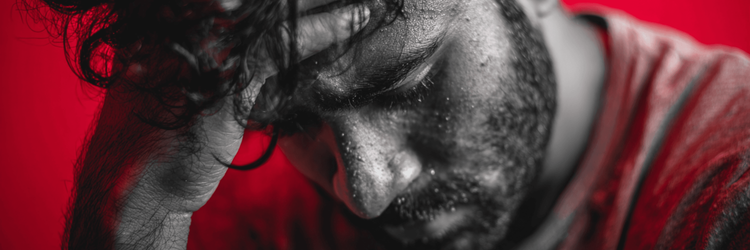A new notification pops up
Scroll.
Scroll.
Scroll.
Sound all too familiar?
In today’s world, we’re pretty much glued to our screens from checking emails the moment we wake up to unwinding with endless Instagram Reels before bed. Sure, technology makes life easier, but it also drains our focus, stresses us out, and kills productivity. It makes us hungrier for everything to be instant, and messes up our attention span to the point that activities that don’t spike your dopamine instantly like reading, working, or even working out don’t sound rewarding enough.
So what do you do now?
Well, the easiest solution, and the most widespread one would be to stay away from anything digital. Enter - digital detox. A deliberate break from devices to regain focus and well-being. But is this practice a proven productivity booster or just another trend with more hype than substance?
What’s a Digital Detox, and Why Should You Care?
A digital detox is all about stepping back from tech. Yes, all tech - phones, laptops, tablets, to clear your head and reduce stress. Unlike vacations (where we usually spend more time on uploading the perfect instagram story), detoxing means ditching distractions and giving your brain a much needed break from the digital world.
But…why bother?
Research shows too much screen time messes with your sleep, focus, and mental health. Every time your phone buzzes, it triggers a dopamine hit, making you crave more. This cycle of instant rewards leaves you mentally exhausted and less productive. A digital detox gives your brain a reset, helping you build healthier habits and focus better.
The effects of taking a break from screens can be pretty amazing. Many people feel less stressed, happier, and more focused after even a short time offline. Giving your brain a break from the constant notifications and digital noise helps it process information better, spark new ideas, and solve problems. A digital detox isn’t about quitting technology forever - it’s about using it on your terms and taking back control.
Suggested Read: Bend Time to Your Will and Get More Done with These Unconventional Ways.
How Digital Detox Actually Makes You Productive
One of the best reasons to try a digital detox is how much it can boost productivity. In today’s world, social media is the most attractive place for most of the world, making it super hard to stay focused on important tasks or to be away from any screen. Did you know it can take up to 23 minutes to fully regain your concentration after a distraction? A detox helps cut out those interruptions, letting your brain settle into deep focus or flow state where your best work happens.
Taking a break from screens also gives your mind the space it needs to think clearly. When we’re constantly scrolling and absorbing information, there’s no time to properly reflect or come up with new ideas. That’s why many successful people swear by unplugging to recharge.
Digital detoxing also increases your creativity. Offline activities like journaling, walking, or having a conversation with someone face-to-face engage parts of the brain that tech can literally dull. Instead of jumping from one instant update to the next, your brain gets to wander and form new connections - leading to fresh ideas and better solutions.
And let’s not forget about sleep. The blue light from screens messes with melatonin, the hormone that helps you sleep. Poor sleep makes it harder to think, remember things, and stay calm. Taking a tech break, especially before bed, can do wonders for your rest, giving you more energy and clearer thinking the next day.
Suggested Blogs:
When Digital Detox Doesn’t Work
Now, before you go cold turkey and toss your phone out the window, let’s take a reality check. Not everyone has the most wonderful or easy detox experience. Some people find that a digital detox can actually make them more stressed or frustrated if it’s not done the right way. So why does this happen?
First, if you go all in with no plan, it’s easy to fail. Trying to cut out technology completely without setting boundaries (like keeping your phone away after dinner or not checking your emails first thing in the morning) might leave you feeling disconnected in a bad way. You’ll likely end up reaching for your device without thinking, which can add more stress to the process than help.
Another reason a detox might not work is that going to extremes doesn’t always solve the problem. Let’s face it, living in a connected world means that some tech use is necessary. A total disconnect is plain and simple - unrealistic. Instead, try a balanced approach. Maybe it’s no phone for an hour every morning or going for a walk without your phone. The key is finding something that fits your lifestyle and works for you, rather than jumping into a detox that’s too rigid.
Lastly, you need to have a “why” behind your detox. If you’re just unplugging for the sake of it, you’ll probably get frustrated and fall back into old habits. Whether your goal is to reduce stress, sleep better, or become more focused, having a clear intention makes all the difference. So, the best detoxes are intentional ones that are designed to meet specific goals.
Suggested Read: The Kind of Music the Top 1% Listen to, to Increase their Focus and Attention.
How Long Should a Digital Detox Last?
The million-dollar question: How long should you unplug? There’s no cookie-cutter approach here. Some people find that even a single day off screens works wonders, while others prefer to take a longer break, like a weekend or even a week. For a more gradual approach, try incorporating small changes into your daily routine. Muting notifications during work hours, not checking your phone during meals, or leaving it at home when you go for a walk can make a huge difference in how you feel.
If you’re looking for a bigger reset, going tech-free for a weekend or longer can help break deeply ingrained habits. The goal is to find a balance that works for you and your lifestyle. Detoxing doesn’t mean you have to give up tech forever. It’s about developing a healthier, more mindful relationship with it. Technology is a tool, and it’s up to you to decide how it fits into your life, rather than letting it run the show.
Suggested Blogs:
Verdict: Productivity Enhancer or Baseless Trend?
Yes, digital detoxing can be totally worth it if you do it the right way. The constant stream of distractions from screens can drain your brain, stunt creativity, and lower your focus. Taking a break gives your mind the space it needs to recharge, helping you regain control over your productivity and mental well-being. But don’t expect it to work like magic. Combine a digital detox with other healthy habits, like regular exercise, good sleep, and mindful eating, for the best results.
Next time you feel overwhelmed by the constant pinging of notifications, consider giving a digital detox a try. It could be the mental reset you’ve been looking for. Your mind might dislike you in the beginning but will thank you in the long run.
More in Sleep












